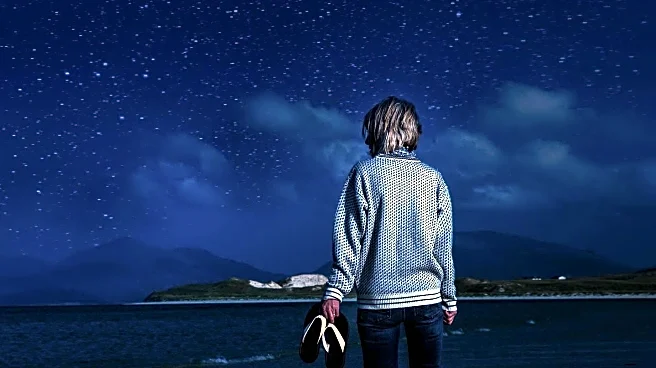What's Happening?
A new documentary airing on Sky Documentaries explores the impactful legacy of Mary Robinson, Ireland's first female president. Robinson, known for her progressive policies, played a significant role in decriminalizing homosexuality and legalizing female contraception in Ireland. Her career extended beyond national politics as she became a UN high commissioner, focusing on global issues such as the climate crisis. The documentary emphasizes Robinson's belief that climate change, a man-made problem, requires a feminist solution. This comes at a time when women's rights are perceived to be regressing in the United States, and the urgency of addressing climate change is increasing.
Why It's Important?
Mary Robinson's story is significant as it highlights the intersection of gender equality and environmental advocacy. Her approach suggests that empowering women can be a crucial strategy in tackling global challenges like climate change. The documentary serves as a reminder of the progress made in women's rights and the ongoing struggles faced in various parts of the world, including the U.S. Robinson's legacy may inspire policymakers and activists to consider gender perspectives in environmental policies, potentially influencing future legislation and international agreements.
What's Next?
The documentary may spark discussions among political leaders, environmentalists, and gender rights activists about the role of women in addressing climate change. It could lead to increased advocacy for policies that integrate gender equality into environmental strategies. As Robinson's story gains attention, there may be calls for similar leadership in other countries, emphasizing the need for inclusive approaches to global issues.
Beyond the Headlines
The documentary not only highlights Robinson's achievements but also raises questions about the ethical dimensions of climate policy and women's rights. It challenges viewers to consider how societal structures can be reformed to better address these interconnected issues. The film may also contribute to a broader cultural shift, encouraging more women to take leadership roles in environmental and political spheres.











